A Level History Years 12 & 13
Specification
AQA - The specification and assessment structure can be found at the link: https://www.aqa.org.uk/subjects/history/as-and-a-level/history-7041-7042
Aim
To encourage pupils to develop their interest in and enthusiasm for History, and an understanding of its intrinsic value and significance. Pupils will build on their understanding of the past through experiencing a broad and balanced course of study which looks at both British and European History. Over the two years pupils will develop the ability to ask relevant and significant questions about aspects of the past and understand that history is concerned with judgements based on evidence, and that judgements may conflict or change over time.
By the end of the course pupils will have developed into independent learners and researchers and as critical and reflective thinkers.
Methods of Teaching & Learning
At A Level pupils will use historical terms, concepts and skills and make links and draw comparisons across different time periods or national boundaries. Pupils will be taught through a variety of methods, including whole group lectures, as well as tutorial style work for individuals and small groups. Pupils will be encouraged to learn through independent study, particularly with the Historical Investigation module at A Level.
Qualities and Qualifications Needed to study History In The Sixth Form
It is expected that pupils will have at least a grade 6 in History at GCSE or a grade 6 in their English GCSE. Pupils need to be good at essay work, source evaluation and willing to work independently. The most important quality needed is the willingness to work, ask questions and take ownership of your learning.
Why Study History?
By studying History pupils will gain an understanding of the past and also of the world around them. The subject furnishes the student with valuable skills for a variety of future careers, provides a context to enable us to understand developments in the modern world and is a fascinating study in its own right. Today’s events – the coalition government, economic depression, involvement in conflicts in the Middle East – all have historical antecedents. The study of History enables us to place the modern world in an intelligent context and to understand the events of our time. Knowledge of current affairs is often an essential skill sought by employers and tested at job interviews. The History student usually impresses with his broad understanding of the background to modern political and social events.
History is a subject which is highly valued by both employers and universities due to the many transferable skills pupils will develop. In fact the Russell Group universities view History as a “facilitating” subject i.e. one which is frequently required by universities and is seen as having prepared students for degree level study. They described History as “particularly effective in equipping students with the skills they need for a large number of competitive courses and in increasing a student’s chances of getting on to those courses." History is a subject which complements Arts subjects and gives a good balance for students.
Paper 1 - Breadth Study: The British Empire, c1857–1967 (1J)
This paper will be a written examination worth 40% of the History A Level and will last 2 hours 30 minutes. There will be 3 questions and a total of 80 marks for the paper. The content of the paper will be:
Part One:
- The High Water Mark of the British Empire, c1857–1914.
- The development of Imperialism, c1857–c1890.
- Imperial consolidation and Liberal rule, c1890–1914.
Part Two:
- Imperial Retreat, 1914–1967.
- Imperialism challenged, 1914–1947.
- The winds of change, 1947–1967.
Paper 2 - Depth Study: Democracy and Nazism, Germany, c1918–1945 (2O)
This paper will be a written examination worth 40% of the History A Level and will last 2 hours 30 minutes. There will be 3 questions and a total of 80 marks for the paper. The content of the paper will be:
Part One:
- The Establishment and early years of Weimar, 1918–1924
- The 'Golden Age' of the Weimar Republic, 1924–1928
- The Collapse of Democracy, 1928–1933
Part Two:
- The Nazi Dictatorship, 1933–1939
- The Racial State, 1933–1941
- The impact of War, 1939–1945
Paper 3 - Historical Investigation
This should take the form of a question in the context of approximately 100 years. It must not duplicate the content of options chosen for the breadth and depth study. We currently study the period 1558 to 1642 examining the long and short term causes of the English Civil War. Pupils must include different historians’ viewpoints and three primary sources to support the arguments made. The Historical Investigation will be between 4000 and 4500 words and will be worth 20% of the History A Level. It will be marked by teachers and moderated by the examination board.
Year 12
Subject Area: British and European History
Key topics to be taught this year:
The British Empire 1857-1914
Germany, Democracy and Nazism 1918-1945
Causes of the English Civil War
| Topic | Further details about the topic | Skills | |
|---|---|---|---|
| Autumn Term | |||
| 1 | The British Empire - Development of Imperialism 1857-1890 |
The six key themes – expansion of the Empire, imperial policy, role of individuals, role of economic factors, impact on British attitudes and culture, response of indigenous peoples |
Note making Essay writing Discussion Interpretation evaluation |
| 2 | Germany - The Weimar Republic 1918-1924. The Golden Age of the Weimar Republic 1924-28 |
The impact of the Great War on Germany and the Treaty of Versailles. The economic and social problems in Germany. The political instability and extremism Germany faced up to 1924. Economic, political, social and cultural developments in Germany, 1924-28 |
As above plus contemporary source analysis |
| Spring Term | |||
| 1 | The British Empire - Imperial Consolidation and Liberal Rule 1890-1914 |
The six key themes – expansion of the Empire, imperial policy, role of individuals, role of economic factors, impact on British attitudes and culture, response of indigenous peoples |
As above |
| 2 |
Germany - The Golden Age of the Weimar Republic 1924-28
The collapse of democracy 1928-1933 |
Germany's international position, 1924-28
The impact of the Depression. The appeal of Nazism and communism. The appointment of Hitler as Chancellor. The establishment of the Nazi dictatorship January- March 1933. |
Revision Exam before May half-term As above |
| Summer Term | |||
| 1 |
Rise of Parliamentary Power 1558-1624 Charles I |
Coursework Option |
Independent Learning |
| 2 |
Religious tensions 1558-1624 Economic problems 1558-1624 |
Coursework Option |
Note making Essay writing Discussion |
Year 13
Subject Area: British and European History
Key topics to be taught this year: The British Empire 1914-1967
Germany, Democracy and Nazism 1918-1945
| Topic | Further details about the topic | Skills | |
|---|---|---|---|
| Autumn Term | |||
| 1 |
British Empire - Imperialism Challenged 1914-1947 |
The six key themes – decline of the Empire, imperial policy, role of individuals, role of economic factors, impact on British attitudes and culture, response of indigenous peoples |
Research skills Source analysis Essay writing Independent study |
| 2 |
Germany - The Nazi dictatorship 1933-39 and the Racial Sate 1933-41. |
Hitler’s consolidation of power, March 1933 to August 1934. The ‘Terror State’. Nazi economic and social policies. The radicalisation of the State. Nazi policies towards the Jews, 1933–37. |
As above plus source analysis |
| Spring Term | |||
| 1 |
British Empire – Winds of Change 1947-1967 |
The six key themes – decline of the Empire, imperial policy, role of individuals, role of economic factors, impact on British attitudes and culture, response of indigenous peoples. |
As above |
| 2 |
Germany - The Racial State 1933-41 The impact of war, 1939-45 |
The development of anti-Semitic policies, 1938–40. Policies towards the Jews, 1940–41 The impact of war on German society. The wartime economy and the work of Speer. The 'Final Solution'. Opposition and resistance in wartime. |
As above |
| Summer Term | |||
| 1 |
Revision |
Revision of both the Breadth and Depth studies |
As above |
Assessments
| Resources | Topic | Type of assessment |
|---|---|---|
| CAT 1 | The British Empire and Germany | Essay |
| CAT 2 | The British Empire and Germany | Essay |
| CAT 3 | The British Empire and Germany |
Mock examination |
| CAT 4 | The British Empire and Germany | Essay |
| CAT 5 | The British Empire and Germany |
Mock Exam Essay |
Main Resources
| Resource | Details |
|---|---|
| Set texts |
The British Empire |
| Recommended reading |
The Lion’s Share. A Short History of British Imperialism 1850-2004 by Bernard Porter. The Rise and Fall of the British Empire by Lawrence James. The British Empire. A Very Short Introduction. By Ashley Jackson. The Shortest History of Germany by James Hawes for a big overview of Germany history The Coming of the Third Reich by Richard Evans for a detailed look at Germany before the Nazis took over |
| Recommended Websites |
http://www.schoolhistory.co.uk Jeremy Paxman – Empire DVD (available on Amazon) or Youtube - BBC Empire Episode 1 A Taste for Power - YouTube |
| Pod Casts |
The Weimar Years The Essay - The Weimar Years - Episode 1 - BBC Sounds Hitler in History BBC Radio 4 - In Our Time, Hitler in History
https://www.bbc.co.uk/programmes/p00547kp - The British Empire https://www.bbc.co.uk/programmes/b03ffkfd - The Berlin Conference https://www.bbc.co.uk/programmes/b00rykqd - The Zulu Nation https://www.bbc.co.uk/programmes/b00qprnj - The Indian Mutiny https://www.bbc.co.uk/programmes/p0054906 - East India Company https://www.bbc.co.uk/programmes/p00548jd - Slavery & the Empire https://www.bbc.co.uk/programmes/p00548h4 - Cultural Imperialism https://www.bbc.co.uk/programmes/p005459p - Legacy of the Empire |
Enrichment opportunities
| Activity | Day and time or term |
|---|---|
| Visit to the National Civil War Centre, Newark | |
| Visit to Bishop Grosseteste Universities to support the teaching of the NEA | |
| We have close links with the University of Lincoln and the Historical Association, so we usually organise student visits to attend lectures relating to the main components of study |







